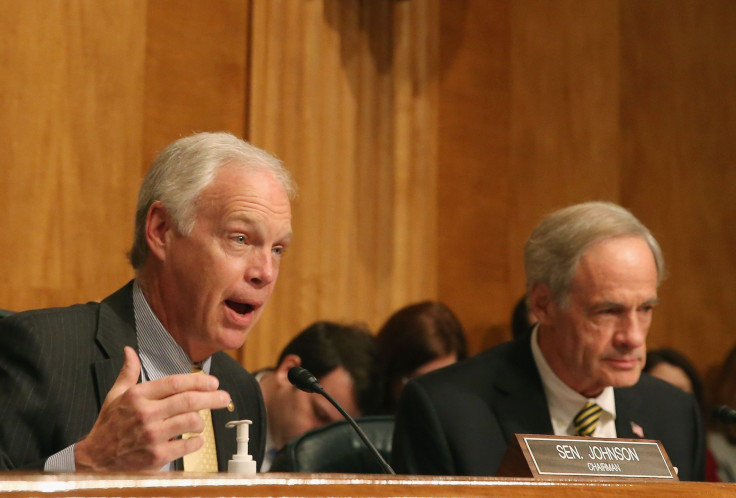VA Scandal Update: Senators Question Veterans Affairs About Retaliation Against Whistleblowers

Chris Kirkpatrick, a psychologist at the Tomah Veterans Affairs Medical Center, was reprimanded by his supervisor in April 2009 for raising questions about the medications being prescribed for veterans. When he was fired three months later, according to Senate testimony, he returned home and committed suicide.
It’s clear now that Kirkpatrick was right: Veterans at the Tomah facility were being overprescribed drugs. Last year, a veteran overdosed there after he was prescribed more than a dozen drugs. A review released by the Department of Veterans Affairs (VA) in March found that veterans at the Tomah center were 2.5 times more likely to be prescribed high levels of opioids than the national average.
On Tuesday, the Senate Homeland Security and Governmental Affairs Committee held a hearing on the VA’s treatment of whistleblowers. Kirkpatrick’s brother Sean testified at the hearing and asked lawmakers to better protect VA employees who report misconduct by their superiors. He asked the committee to heed his brother’s final request to his union representative: “Try to get a support system so that no one else has to go through what I did. Will you please do that?”
In recent years, the VA has faced increasing scrutiny concerning its care for veterans, particularly in light of a report that employees at the VA system in Phoenix had concealed long wait times that veterans were experiencing in trying to see doctors. The VA has also faced allegations of rampant retaliation against whistleblowers.
The Office of Special Counsel, which protects federal employees, told the committee it expects to receive over 2,000 whistleblower complaints this year and that 38 percent of those will be filed by VA employees. Carolyn Lerner, who heads the office, expressed concerns Tuesday that “disciplinary actions are being inconsistently imposed.”
In written testimony, she said the VA took no corrective action after a whistleblower reported that nurses in the Phoenix VA’s Emergency Department were poorly trained, leading to 110 cases where “patients were improperly triaged and experienced dangerous delays in care.” The manager of a VA clinic in Washington state “falsified government records, repeatedly overstating the amount of time she spent counseling veterans,” Lerner stated. The manager received only a reprimand.
Meanwhile, Lerner said, a food services manager who expressed concern about sanitation at the Philadelphia VA Medical Center was fired for eating four expired sandwiches.
In the past two years, the VA has moved to discipline 40 officials who retaliated against whistleblowers. Asked by Sen. Claire McCaskill, D-Mo., how many of those officials were fired, VA officials could identify only one.
Sen. Ron Johnson, R-Wis., who led Tuesday’s hearing, said: “The VA has a cultural problem with regards to whistleblower retaliation.”
“There is obviously enormous agreement that we have a problem here,” he said. “There’s also enormous agreement that we do need to honor promises to the finest among us.”
© Copyright IBTimes 2025. All rights reserved.






















